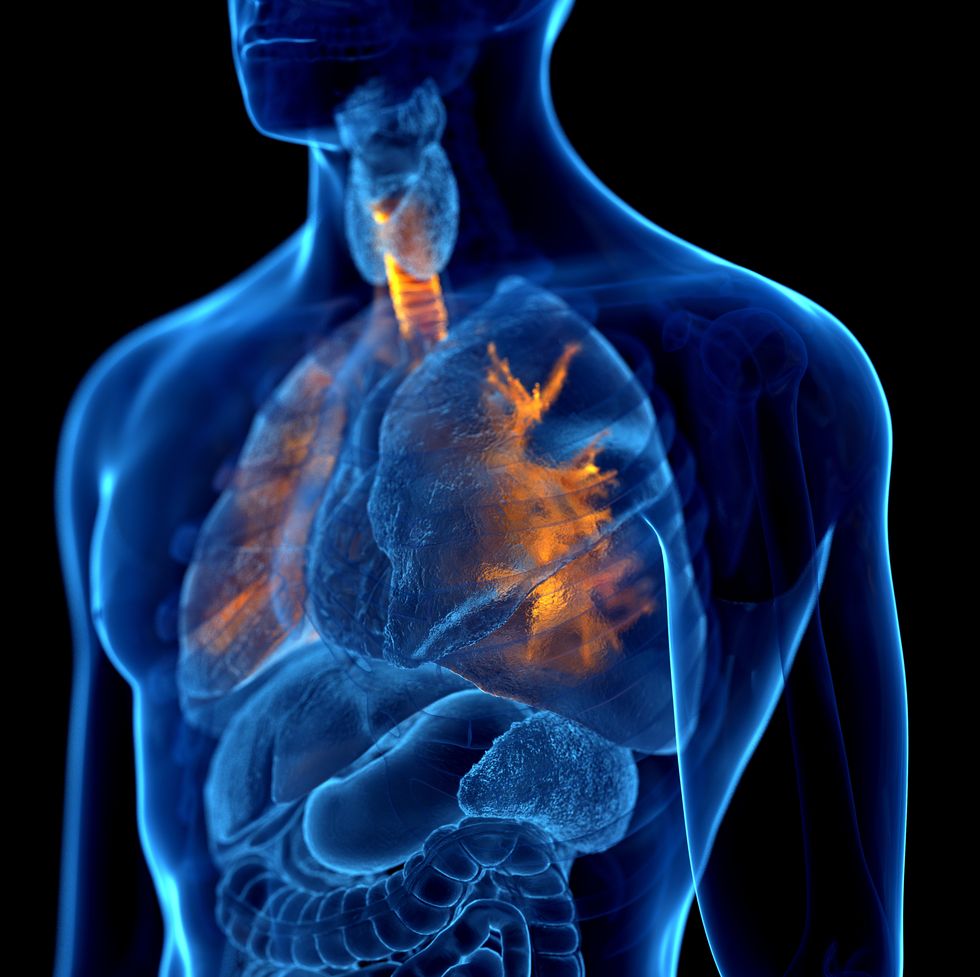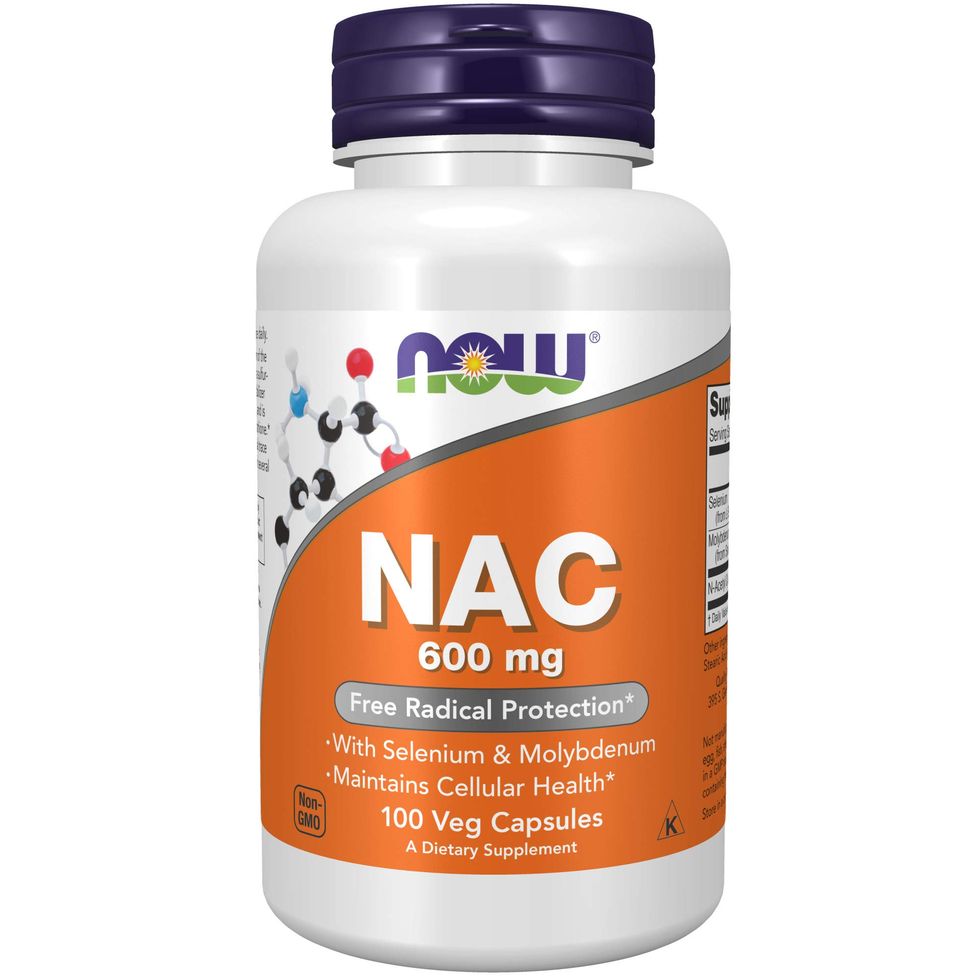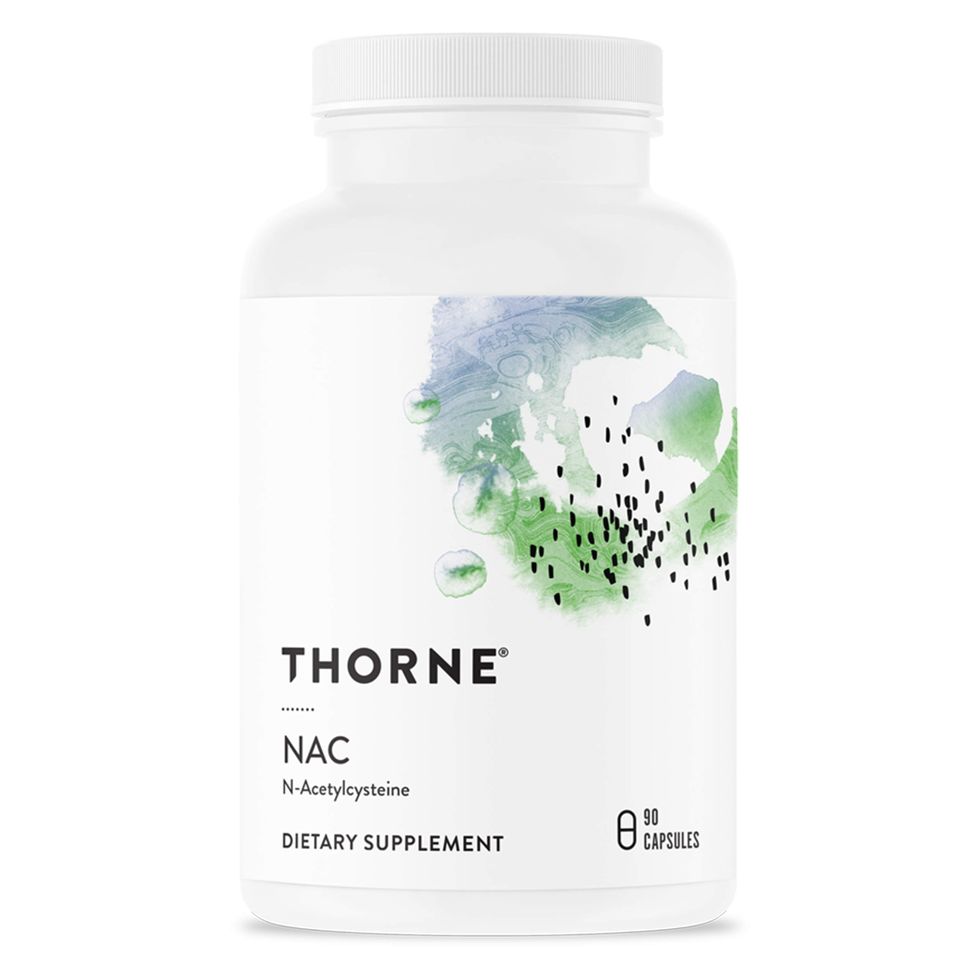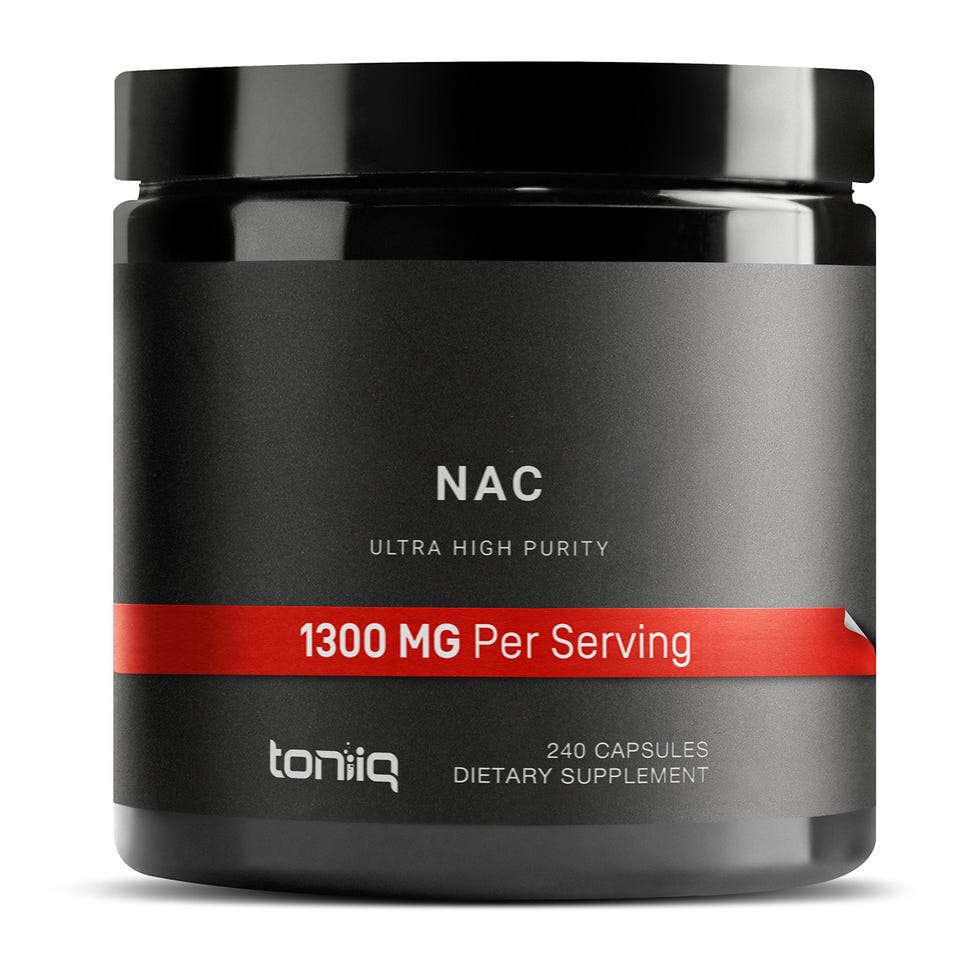[ad_1]
You may have heard of NAC from a friend who is taking the supplement or seen it in news headlines. The synthetic form of the amino acid cysteine, NAC has some promising health benefits. But are its purported uses legitimate? Here is everything you need to know about the supplement, including NAC potential health benefits, side effects and our experts’ picks for top-tested NAC supplements on the market. Always speak with your healthcare provider before starting any new supplement regimen.
What is NAC?
NAC, short for N-acetyl cysteine, is widely available as a supplement but also as a prescription medication. It is an amino acid precursor to an important antioxidant in the body called glutathione.
NAC is not an essential nutrient, but rather is the supplement form of the non-essential amino acid cysteine that plays a role in making protein and other metabolic functions in the body. Non-essential amino acids mean that our bodies can produce them, even if we don’t get them from food.
More From Good Housekeeping

Cysteine specifically is found in many high-protein foods including cottage cheese, poultry, yogurt, ricotta and more. But NAC itself cannot be naturally found in foods.
Potential Health Benefits of NAC
There are several purported benefits of NAC, but research is limited and comprised mostly of smaller studies. However, NAC does show some potential in the following uses:
1. Can treat acetaminophen poisoning
Although many of NAC’s alleged health benefits lack robust scientific research, there is one main use that is quite legitimate. The U.S. Food and Drug Administration (FDA) has approved NAC as a treatment of toxic doses of acetaminophen, the generic name for the brand name medication Tylenol. If given within eight hours post-ingestion of the acetaminophen, research shows that NAC is almost 100% effective.
2. May help relieve symptoms of certain viral infections
NAC supplementation cannot prevent or treat viral infections, but one large study on patients with COVID-19 showed some promising results. It found that patients who were given high doses of oral NAC, in addition to standard COVID-19 treatment, were associated with better survival than patients with standard treatment alone. Interestingly, this was despite the COVID-19 patients treated with NAC being older and having more comorbidities.
Another smaller study conducted in Greece found that supplementing with high dose oral NAC at a total of 1200 milligrams per day reduced risk for mechanical ventilation and mortality in patients with COVID-19.
3. May support brain health
Researchers at Thomas Jefferson University conducted a small study in patients with multiple sclerosis. One group was given both oral and intravenous NAC in addition to their standard care, while the other group was only given their standard treatment. Patients receiving NAC showed improvements in brain metabolism and cognitive function.
Another potential mechanism of NAC and its potential support of brain health is its relationship to glutathione. As we age, glutathione levels can decline and can leave the brain more susceptible to oxidative injury. Decreased glutathione levels have also been observed in individuals with certain conditions including mild cognitive impairment, Alzheimer’s disease, Parkinson’s disease and depression. Since NAC can increase glutathione levels in the body, it is thought that this can combat oxidative damage and certain conditions related to brain health, but more research is needed.
4. May support male and female fertility
Polycystic ovarian syndrome (PCOS) is a condition that impacts hormones and may cause symptoms such as irregular periods, excess hair growth and even infertility. Literature out of the British Journal of Nutrition examined the relationship between NAC supplementation on women with PCOS. The systematic review and meta-analysis found that NAC supplementation decreased total testosterone levels and increased follicle-stimulating hormone (FSH) levels in patients with PCOS, indicating improvements in reproductive system function.
But the effects may not be limited to just females. In fact, one recent small study looked at a panel of infertile men who were supplemented with 600 milligrams of NAC daily for a total of three months. Of the many significant findings were that sperm count and motility (how efficiently sperm move or swim) of the patients taking NAC increased significantly. Total antioxidant capacity also increased, potentially suggesting that NAC may reduce oxidative stress that can damage sperm.
5. May promote overall immune health
NAC isn’t a cure-all, but it may support a healthy immune system via its role as a precursor to glutathione. Since antioxidants, like glutathione, fight free radicals and oxidative stress, this can in turn support immune function. One very small study in postmenopausal women found that supplementing with NAC for just two to four months may strengthen immune defenses.
6. May protect the heart
Heart disease is the leading cause of death for both men and women in the United States, and diabetics are at an increased risk of heart disease compared to non-diabetics. Interestingly, literature suggests that NAC supplementation may protect the diabetic heart at risk of heart attack by inhibiting oxidative stress and preventing cardiac damage. Another relatively small study showed that four weeks of NAC supplementation was associated with improved blood pressure and reduced levels of homocysteine (an amino acid which high levels have been linked to early development of heart disease).
7. May lessen the side effects of certain cancer treatments
There is controversy around NAC and other antioxidants and whether they can lessen the side effects of chemotherapy, which is why it is important to speak with your oncologist to determine if NAC supplementation is compatible with your treatment plan. NAC cannot prevent or treat cancer, but some small studies suggest that it may reduce the side effects of certain cancer treatments.
8. May reduce COPD exacerbations
Some research suggests that a daily dose of 600 milligrams of NAC may reduce the risk of chronic obstructive pulmonary disease (COPD) exacerbations and improve symptoms compared to individuals with COPD who do not take NAC. This could be because NAC may act as an antioxidant on the lungs. The supplement may also help thin mucus and lessen symptoms, though not all studies agree on the latter and more research is needed.
Side Effects of NAC
Although oral NAC is generally well tolerated by healthy individuals, very high doses may result in headaches, chest pain, dizziness and gastrointestinal symptoms. Another important thing to note about NAC supplements is that they tend to have an unpleasant smell, which may make them difficult to consume.
There is some evidence that NAC may also worsen asthma symptoms, as well as interact with angina medications and antihypertensive medications. NAC supplements are not recommended for pregnant, nursing women or individuals on blood thinners.
NAC Supplements
Given that supplements are not approved by the U.S. Food and Drug Administration (FDA) prior to going to market, it’s extra important to do your research to make sure that what is on the label is actually in the bottle. Always speak with your healthcare provider before beginning any new supplement regimen.
The Bottom Line
NAC has received a lot of buzz in recent years and has some pretty compelling purported benefits from supporting immune health to potentially protecting the heart. But much of the research consists of small studies with several limitations, and more research is needed. If you do choose to start supplementing with NAC, be sure to check in with your healthcare provider. Remember that supplements should do just that: supplement the diet, not replace high-quality, healthy food.
Nutrition Lab Director
Stefani (she/her) is a registered dietitian, a NASM-certified personal trainer and the director of the Good Housekeeping Institute Nutrition Lab, where she handles all nutrition-related content, testing and evaluation. She holds a bachelor’s degree in nutritional sciences from Pennsylvania State University and a master’s degree in clinical nutrition from NYU. She is also Good Housekeeping’s on-staff fitness and exercise expert. Stefani is dedicated to providing readers with evidence-based content to encourage informed food choices and healthy living. She is an avid CrossFitter and a passionate home cook who loves spending time with her big fit Greek family.
Laura Iu is a registered dietitian nutritionist, certified intuitive eating counselor, yoga guide and owner of Laura Iu Nutrition, a private practice in New York City. She earned her Bachelor of Science in Nutrition and Dietetics from New York University and completed her internship in dietetics at Weill Cornell & Columbia Medical Center of New York-Presbyterian Hospital. She went on to work in New York City’s top hospitals, including Mount Sinai Hospital and NYU Langone Health.
[ad_2]
Source link






